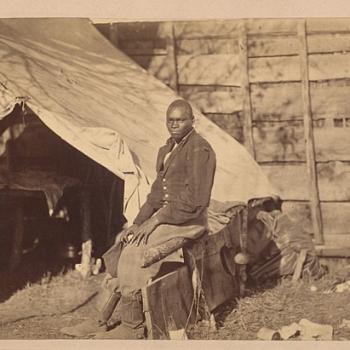Kacey Musgraves has a pleasant, albeit tinny, voice. Her song “Follow Your Arrow” was a gift to me from Starbucks, so I should have a kind word or two for her as the recipient of corporate largesse generous enough to share it with me. Starbucks usually sends me songs that are either old classics or “courageous,” meaning in agreement with most of the people who drink coffee at Starbucks.
The song itself is catchy enough in a Monkees way and makes a simple Fortune Cookie point, if your Cookie were written by the Fortune 500 advertiser: since you cannot please everyone, please yourself. Many a low fat cookie will be sold on this advice.
And the Cookie seems true enough: in a polarized world you will never please everyone, so if your goal was pleasing people, get loose of it.
Of course, the goal of acting so as to please people is a bad one and Musgraves replaces one bad with a better evil. Her road to hell will not be paved with good intentions, but with self-actualization. The good intentions are hardly ever good, while Musgraves is bound to follow her own inclinations with the hope that today’s inclinations does not make one unfit for tomorrow’s.
If one must be damned, it is better to be damned on one’s own account than trying to please the devils on the right or the left. If one’s goal in Church is to be respectable, which must have been someone’s goal around 1952, then one has invited in a sad sort of demon. I am a bit suspicious, however, that a writer of a corporate give away may have made a few compromises along the way, but in thanks for the free song I will be charitable and assume she means her advice and is not just trying to get me to follow my inclination for lattes.
How does Ms. Musgraves know her actual desires as opposed to the one that decades of television and corporate media consumption have produced?
Does she know herself so well?
To follow one’s arrow means to have a bow and arrow, generally made by somebody else. Musgraves has inherited a country, culture, and set of dispositions. She is shooting an arrow that at least in part she has inherited.
There is also the problem of the jihadist listening to her song, whose bliss is shooting more than arrows.
But Musgraves may know her audience, a decadent group of Americans who have inherited a culture they no longer understand. These people watch the Lone Ranger claim in the latest film adaptation that John Locke is his Bible in the latest movie without knowing that John Locke was a Christian apologist. If ignorance were bliss, they would be happy all the time, but ignorance is boring and so they are bored most of the time.
Now the Starbucks drinker, the target Musgraves audience, is educated enough to learn intellectual jargon that (shockingly!) ends up justifying his or her desires. Boredom is staved off by turning even the most mundane of conflicts into a life event, Facebook portentously announcing each inch of the flight of the arrow.
But wouldn’t it be nice if there were an appropriate target for the arrow? Eventually death comes, the arrow lands, and then Musgraves, like all of us, will go to the Undiscovered Country. She may be an atheist or an agnostic for the comfortable lie that there is an exit to the cosmos in death, but best reason and human experience suggests she is wrong.
Even if she is right, surely human experience doesn’t show following your bliss leaves a good world for future generations? Should we burn fossil fuels now that our grandchildren be left with nothing? Why should I care about kids not yet even born?
Now perhaps Musgraves means the “arrow” of her internal compass, an updated Jimney Cricket “always let your conscience be your guide.” In this case, Musgraves appears to be urging to always let our passions be our guide. But wasn’t Walt right about Pleasure Island, the ultimate goal of such a life: doesn’t it make a jack ass of us?
She also would have to assume that her compass is totally her own and not the product of heredity and environment all mixed together in a stew. A compass points to the North based on forces outside of the control of the compass, but Aristotle was right: our moral compass needs education. The settings are not perfect.
The examined life might help Musgraves, but the examined life will end up needing a magnetic North, a true pole, to guide her.
Here is an idea: Musgraves could live to please God. She could be just, even when those around her believed her justice was injustice. As Socrates put it in Republic II, she could love justice for the sake of goodness and not to please others or herself. She could live for an external standard not created in New York City or Los Angeles, but one that had been honed over centuries of thought and reflection and initially gained through divine revelation.
My guess is that her education has taught her epistemic humility about knowing God’s will, which is wise, but forgot to teach her humility about knowing herself, which is disastrous. Divine revelation is, on the whole, less tricky than our own passions.
 Even in this life following our bliss tends to enslave us to our smallest desires: food, drink, sex. The higher pleasures, the greater goods, require sacrifice. Community requires sacrifice and a group of people all shooting arrows and following them will start hitting each other, even if nobody means to do so.
Even in this life following our bliss tends to enslave us to our smallest desires: food, drink, sex. The higher pleasures, the greater goods, require sacrifice. Community requires sacrifice and a group of people all shooting arrows and following them will start hitting each other, even if nobody means to do so.
Sin, pastor’s tell me, is “missing the mark” with one’s arrow. If there is a mark to hit, given by God, then missing the mark will lead to slavery. Musgraves is right to resist slavery to other’s opinions, but I have no wish to be free of the church ladies only to become a slave to my own base desires. So God help me to follow Your standards, to ignore judgments from people, and to find goodness, truth, and beauty.












